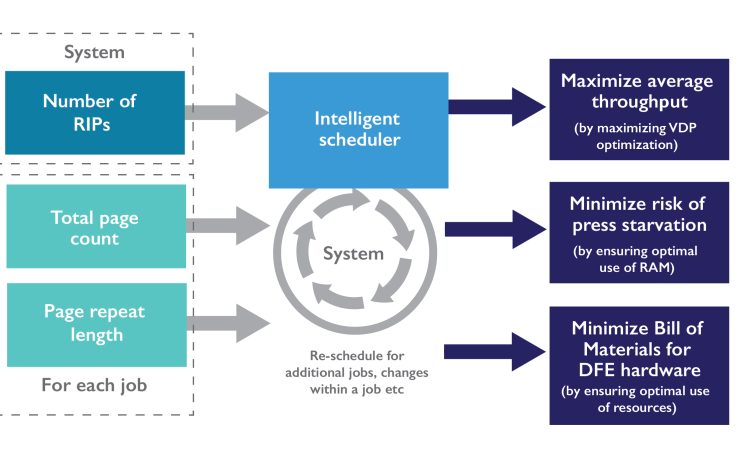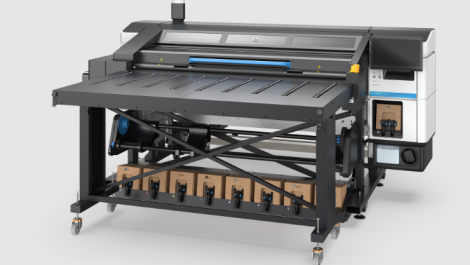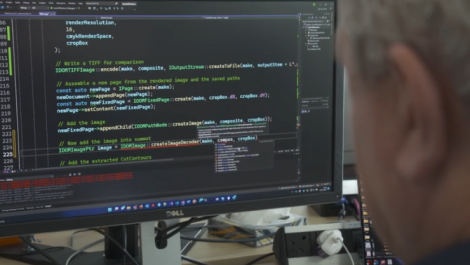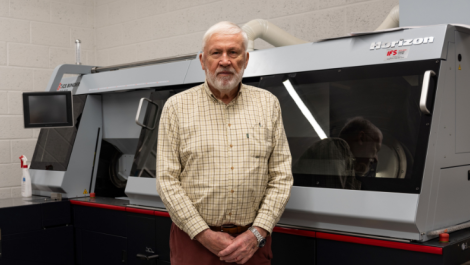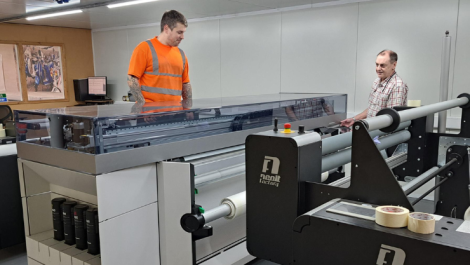Rip and workflow developer Global Graphics, which has designed software including Harlequin RIP, the Direct range and ScreenPro, has been granted a US patent for variable data optimisation in long-run jobs by the United States Patent and Trademark Office.
The patent, which is for ‘Methods and systems for organizing variable data documents including those with long repeat lengths’ details the company’s approach to the submission of pages from a job file to each Rip in a ‘Rip farm’, where multiple Rips are running simultaneously, to optimise their delivery.
The conflicting demands that the patent addresses are the need for pages to be delivered in the order required for printing, in order to minimise memory requirements and the potential for stalling Rips to wait for late-arriving pages, while also ensuring that each Rip receives as many pages with the same re-used elements on them as possible, so as to maximise the efficiency of variable data optimisation.
Justin Bailey, managing director, said, ‘In combination with several other related patents, Global Graphics Software is continuing to innovate on behalf of our OEM customers by developing technologies and products that can drive their digital presses at speed, but with the minimum bill of materials for their digital front ends.
‘Digital print OEMs want to get page rasters out of the Rip farm in the order in which they are to be printed. But that competes with the need to process them efficiently at speed by sending collections of pages with re-used graphics or elements to the same Rip in the farm. This patent is all about optimising the scheduling and the way in which variable data is handled in the Rip. Our method is one of the reasons that our Harlequin brand is the fastest on the market.
‘We’re delighted that this invention has been recognised with a US patent. This method reduces the bill of materials for an OEM building a press because you need less Ram. The risk of starving the press and leaving it idle is reduced because pages are ready in time. Lastly, overall average throughput on the press is maximised because you’re maximising efficiency of the variable data optimisation.’
